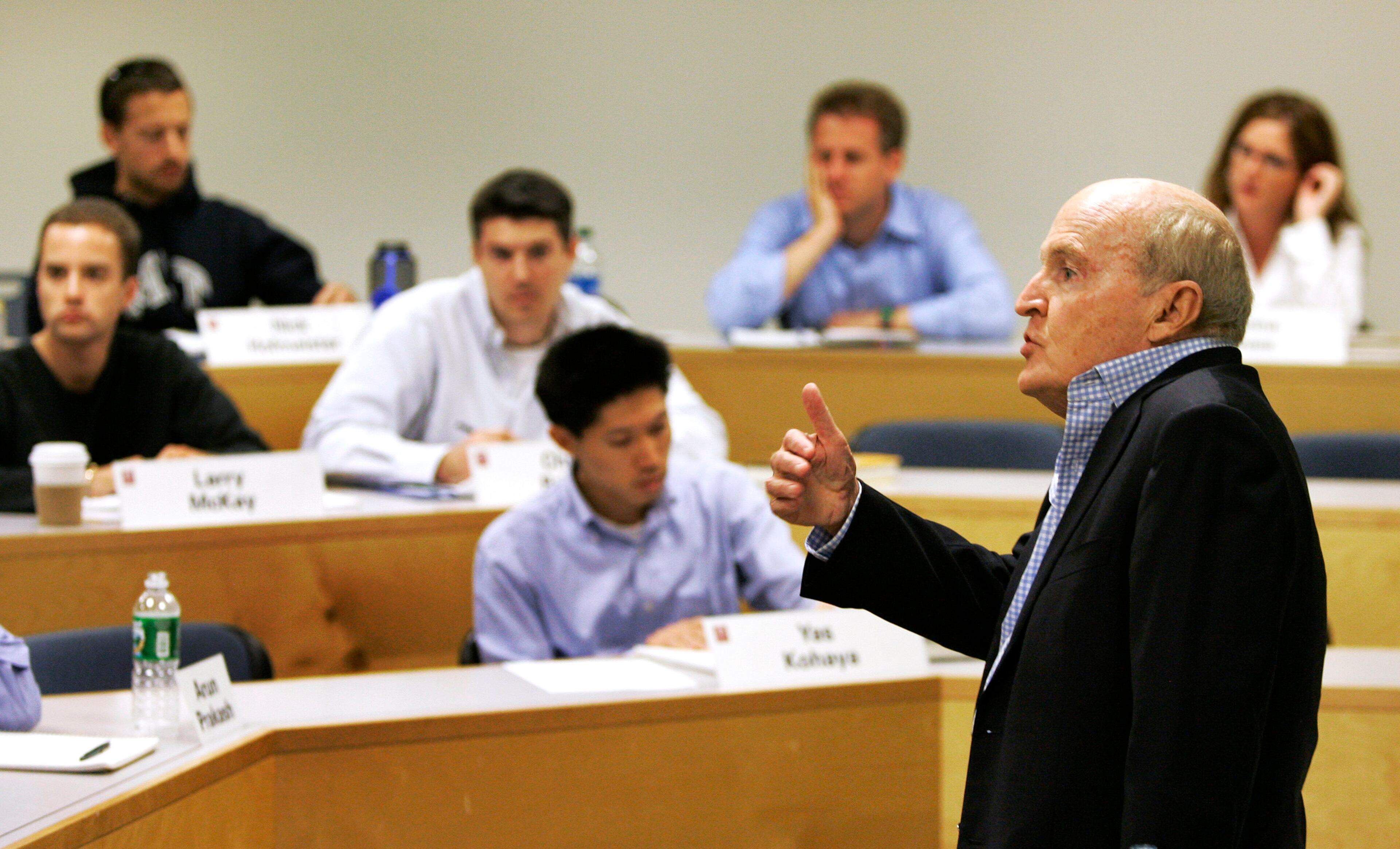Jack Welch, legendary GE chairman and CEO, dead at 84
He was known by many names: “Neutron Jack,” “Manager of the Century” and “the Tiger Woods of CEOs.” Jack Welch, who led General Electric as chairman and CEO for two decades and became a business legend in the process, died Monday. He was 84.
His death was announced by his wife, Suzy, on Monday, according to CNBC.
Remembering Jack Welch, known for his 20 years at the helm of General Electric. https://t.co/1WQPj2QRKp pic.twitter.com/CrURKGwlyv
— CNBC (@CNBC) March 2, 2020
Welch became one of the nation’s most well-known and highly regarded corporate leaders during his two decades as GE’s chairman and chief executive, from 1981 to 2001. He personified the so-called “cult of the CEO” during the late-1990s boom, when GE’s soaring stock price made it the most valuable company in the world.
Jack Welch was one of the greatest CEOs of our time, and an incredible leader and motivator to all at GE and the business world as a whole. He will be greatly missed. My condolences go out to his family and loved ones. https://t.co/dCGQSOUpfo
— John Legere (@JohnLegere) March 2, 2020
Welch grew GE’s market value from $12 billion to $410 billion. Under his leadership, GE became the world’s most valuable company after Microsoft.
Welch’s results-driven management approach and hands-on style were credited with helping GE turn a financial corner, although some of the success came at the expense of thousands of employees who lost their jobs in Welch’s relentless efforts to cut costs and rid GE of unprofitable businesses.
Jack Welch, former Chairman and CEO of GE, a business legend, has died. There was no corporate leader like “neutron” Jack. He was my friend and supporter. We made wonderful deals together. He will never be forgotten. My warmest sympathies to his wonderful wife & family!
— Donald J. Trump (@realDonaldTrump) March 2, 2020
Business success and outspokenness brought him wide fame. In 1999, Fortune magazine named Welch as its “Manager of the Century.”
For his first book, “Jack: Straight From the Gut,” Welch received a $7.1 million advance. Although released on the very morning of the Sept. 11, 2001 attacks, the book became a best-seller, and led to frequent speaking engagements where he took his candor on stage.
»Click here to get the new AJC Mobile App
“From the day I joined GE to the day I was named CEO, 20 years later, my bosses cautioned me about my candor,” Welch wrote in ‘Straight from the Gut.’ “I was labeled abrasive and consistently warned my candor would soon get in the way of my career ... and I’m telling you that it was candor that helped make it work.”

At the peak of his career, Welch ruled over a global empire that had its hand in industries from jet engines to health care. Welch bought and sold scores of businesses, expanding GE into financial services and consulting. GE Capital Bank was founded seven years into his tenure.
RIP Jack Welch. https://t.co/AWVS8LhX9u
— Bret Baier (@BretBaier) March 2, 2020
Welch was chairman and CEO of General Electric between 1981 and 2001. During his tenure at GE, the company's value rose 4,000%. When he retired from GE, Welch received a severance payment of $417 million, the largest such payment in business history.

In the 2005 book, “Winning,” Welch wrote that he would like to be remembered “as a huge advocate of candor and meritocracy, and believing everyone deserves a chance. And I’d like to be remembered for trying to make the case that you can never let yourself be a victim.”
Along with Welch’s fame came greater scrutiny. Welch found himself defending his retirement compensation. Amid a wave of corporate scandals, details of Welch’s GE perks emerged in court papers during his 2002 divorce from his wife of 13 years, Jane Beasley. He received millions of dollars in benefits, including unlimited personal use of GE’s planes, office space and financial services.
RIP Jack Welch, 84.
— Piers Morgan (@piersmorgan) March 2, 2020
One of the world's greatest ever business leaders & such a smart, amusing, charismatic guy.
Interviewed him often on my old CNN show & unlike many others, he was very kind to me when I left.
I judge people how I find them -Jack was a class act. pic.twitter.com/1zhG8X7kqQ
After the perks became public, Welch reimbursed the company for many of them, and paid for use of aircraft and other services.
Jack Welch will be missed. He was a great teacher and a patron to so many..
— Jim Cramer (@jimcramer) March 2, 2020
Welch was also active on Twitter, where he opined on everything from politics to business to sports and had 1.4 million followers.
Some of those opinions generated controversy.
He questioned a monthly jobs report in October 2012 that showed the unemployment rate had fallen below 8% for the first time in three and a half years. The report came two days after President Barack Obama had performed poorly in his first debate with Romney and a month before the election.
“Unbelievable jobs numbers,” he tweeted. “These Chicago guys will do anything...can’t debate so change numbers.”

In 2010, Welch founded the Jack Welch Management Institute, a business school that offers executive education and management training.
Welch was born Nov. 19, 1935, in Peabody, Massachusetts. His father was a conductor for the Boston & Maine Railroad, and his mother was a homemaker. The younger Welch studied chemical engineering at the University of Massachusetts Amherst and received his Ph.D. from the University of Illinois in 1960.
Welch joined GE in 1960 as a chemical engineer in its plastics division in Pittsfield, Massachusetts. He became a vice president in 1972 and vice chairman seven years later. In April 1981, at age 45, he succeeded Reginald H. Jones as chairman and chief executive officer.

